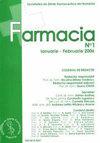戒烟--有什么新变化?
IF 1.4
4区 医学
Q4 PHARMACOLOGY & PHARMACY
引用次数: 0
摘要
戒烟是一种多层面的方法,涉及的患者往往并不完全符合经典的戒烟模式。研究人员发现,与不吸烟者相比,目前吸烟者的预期寿命会缩短 10 年以上,每年有一半以上的人尝试戒烟,但只有不到 10%的人能够坚持至少 6 个月不吸烟。因此,建议综合采用各种方法和策略,从问卷调查到既定的药物治疗。在这方面,医务人员的作用至关重要。尼古丁是一种强效药物,能迅速被人体吸收并迅速扩散到中枢神经系统,戒除尼古丁会导致一些重要的后果,如渴求、寻求毒品的行为和戒断症状。消极情绪状态也会出现,表现为情绪低落、焦虑、易怒和失眠等症状。层次多元回归模型显示,外向性、神经质、自觉性和年龄是预测每日吸烟量的因素。作者讨论了加快这一过程的传统和创新机会,同时分析了提高医疗服务提供者和患者依从性的潜力。戒烟,即戒烟的过程,可以通过药物(基于药物)和非药物(行为和支持)两种方法来实现。选择哪种方法或方法的组合取决于个人的偏好和需求。Rezumat本文章由计算机程序翻译,如有差异,请以英文原文为准。
SMOKING CESSATION – WHAT’S NEW?
Tobacco cessation represents a multifaceted approach involving patients who often don't neatly fit into classic prototypes. Researchers found that current smokers experience a more than 10-year reduction in life expectancy compared to non-smokers, and more than half make an attempt each year, but less than 10% manage to stay smoke-free for at least 6 months. Therefore, it's recommended to employ a combination of methods and strategies, ranging from questionnaires to established medications. The role of the medical staff is and remains vital in this context. Nicotine is a potent drug due to its rapid absorption and swift diffusion into the central nervous system, and quitting nicotine leads to important consequences, such as craving, drug-seeking behaviour and withdrawal symptoms. Negative affective states also emerge, characterized by symptoms like depressed mood, anxiety, irritability and insomnia. Hierarchical multiple regression models have revealed that extraversion, neuroticism, conscientiousness and age are among the predictors of daily cigarette consumption. The authors discuss both traditional and innovative opportunities to expedite this process, while analysing the potential to enhance the compliance of healthcare providers and patients. Smoking cessation, the process of quitting smoking, can be approached through both pharmacological (medication-based) and non-pharmacological (behavioural and supportive) methods. The choice of approach or combination of approaches depends on individual preferences and needs. Rezumat
求助全文
通过发布文献求助,成功后即可免费获取论文全文。
去求助
来源期刊

FARMACIA
医学-药学
CiteScore
2.40
自引率
50.00%
发文量
59
审稿时长
6-12 weeks
期刊介绍:
FARMACIA publishes original research papers, invited topical reviews and editorial commentaries and news, with emphasis on conceptual novelty and scientific quality. Main research areas are focused on: pharmacology, toxicology, medicinal chemistry, biopharmacy, drug design, drug delivery, personalized medicine, nanostructures, nutraceuticals, biochemistry and biotechnology. Manuscripts submitted to the Journal are only accepted after the peer review precess. The papers should have not been published in any other journal. The recommendations of the Declaration of Helsinki, for humans, and the International guidelines as accepted principles for the use of experimental animals should be followed.
 求助内容:
求助内容: 应助结果提醒方式:
应助结果提醒方式:


